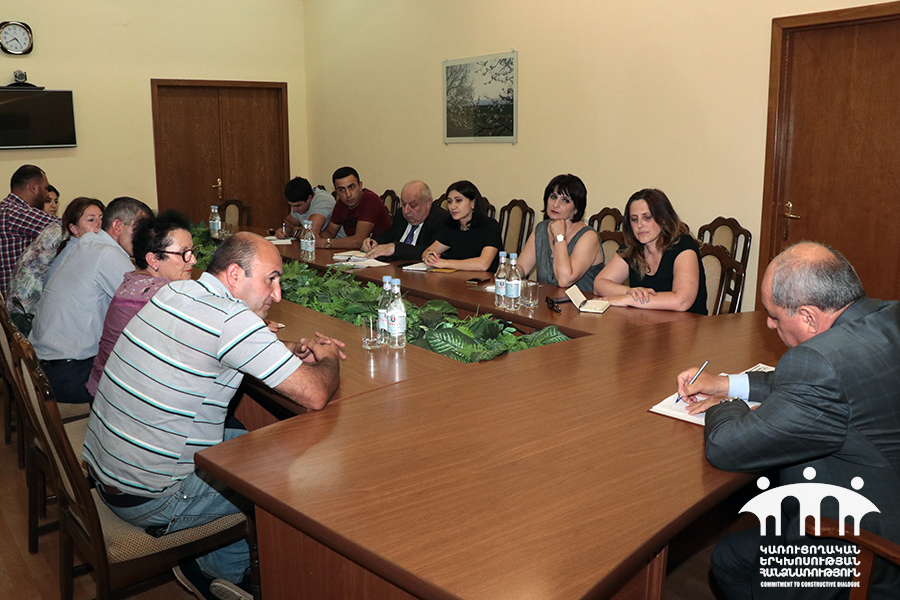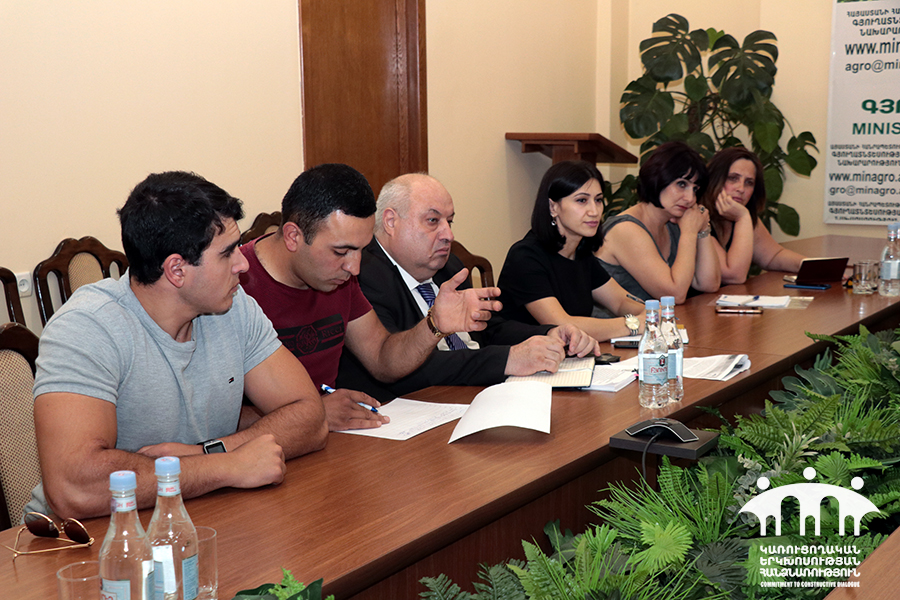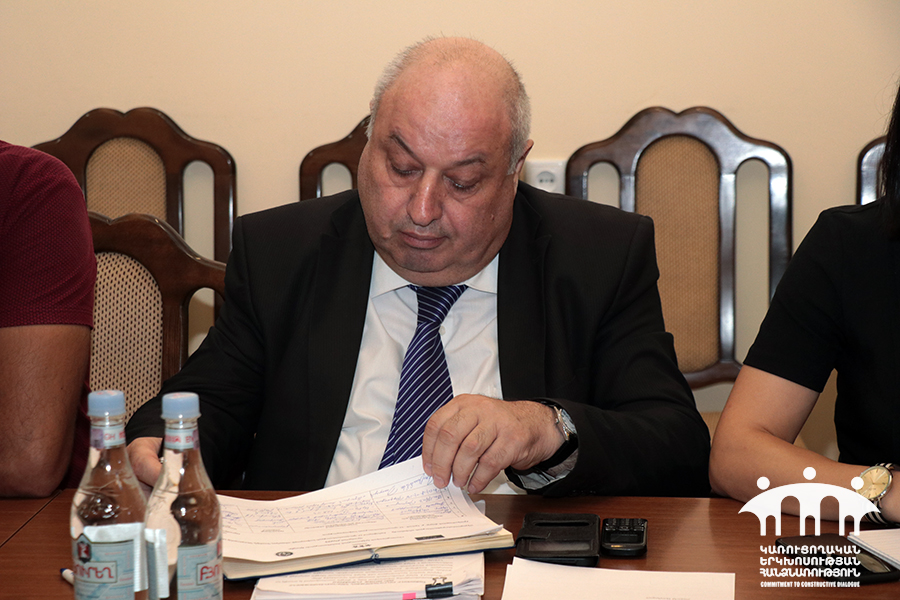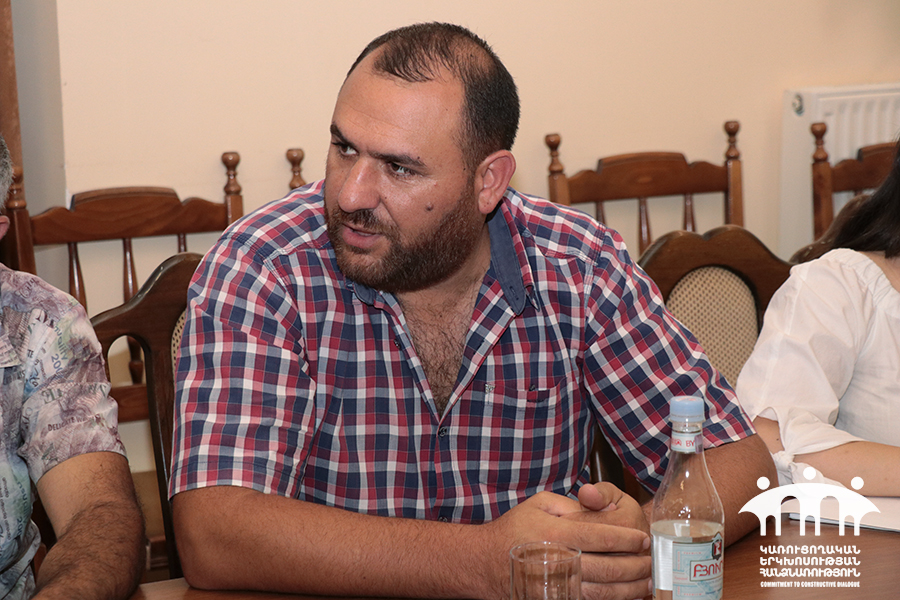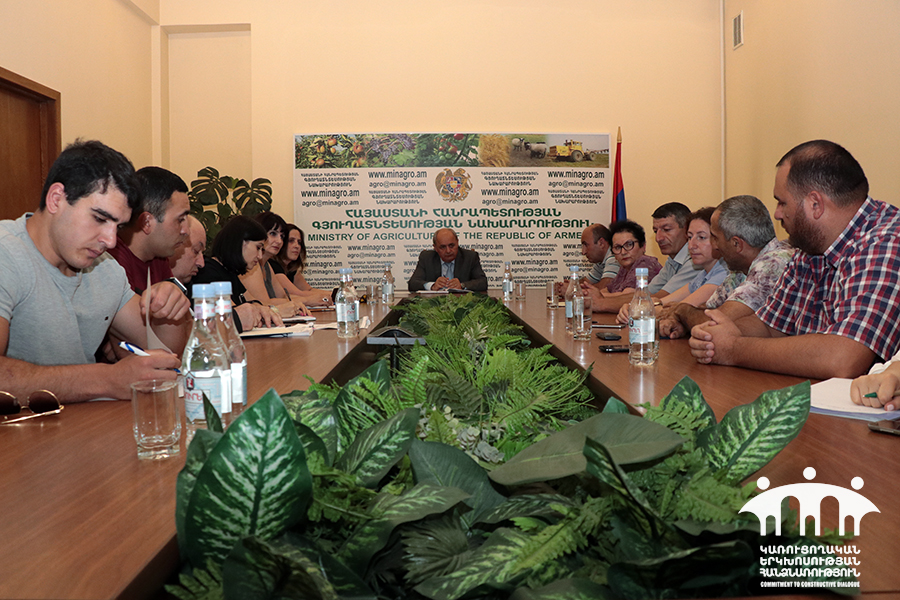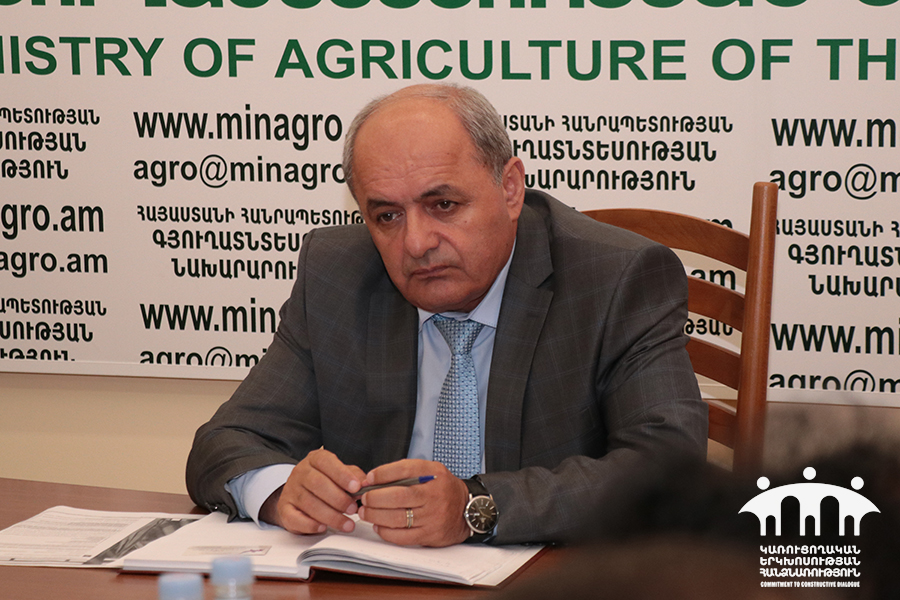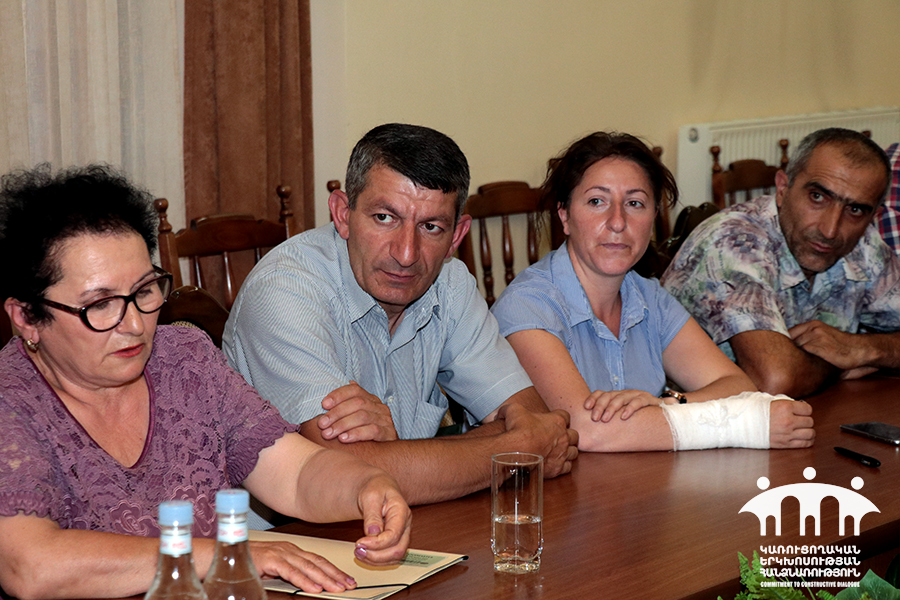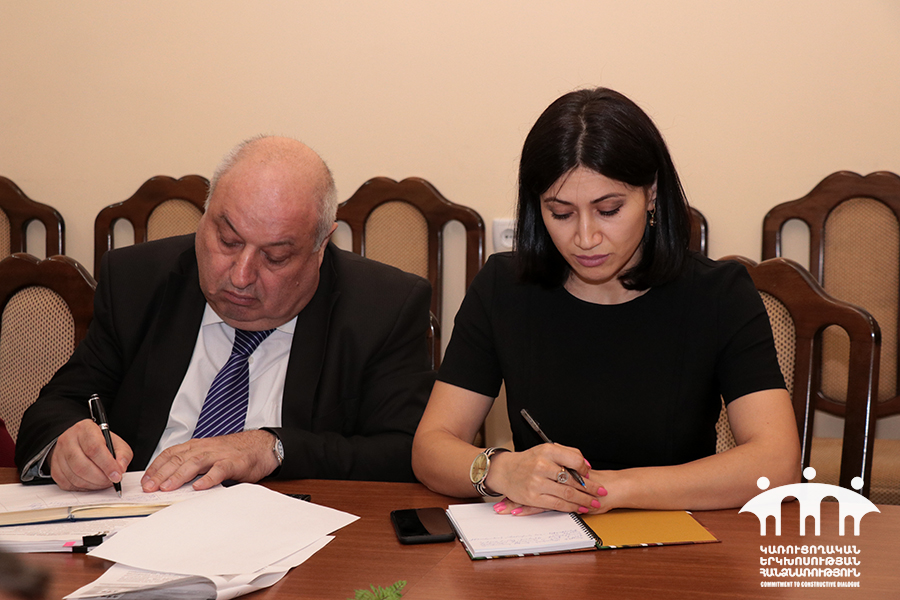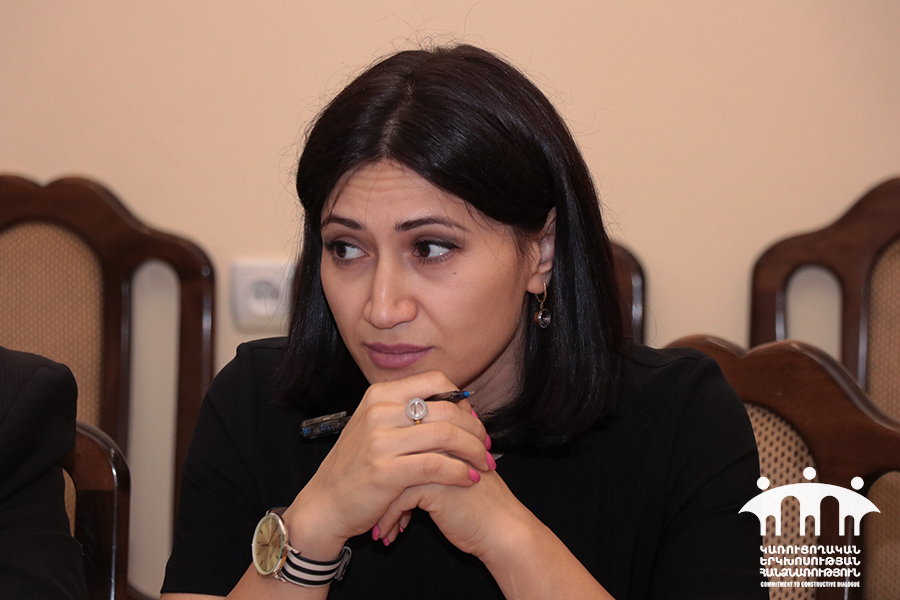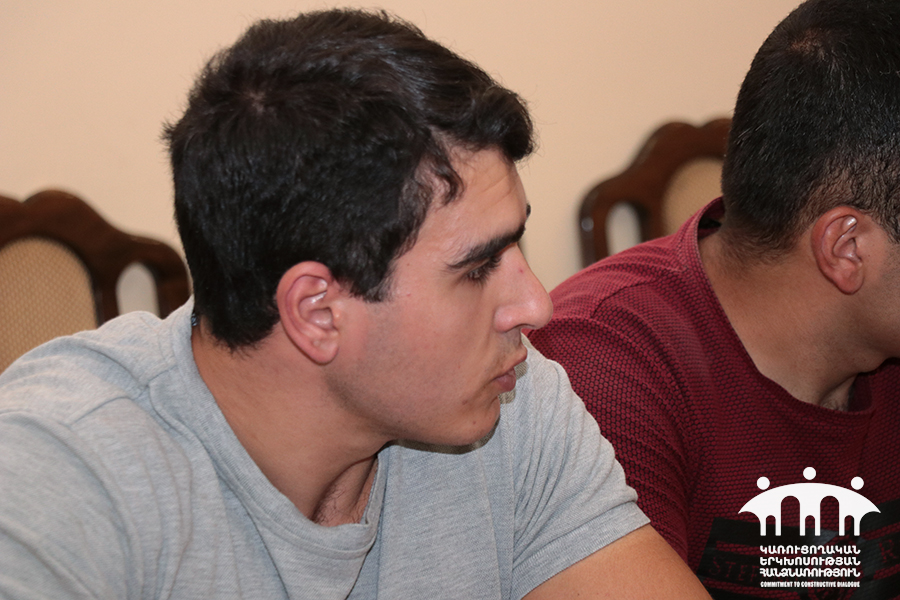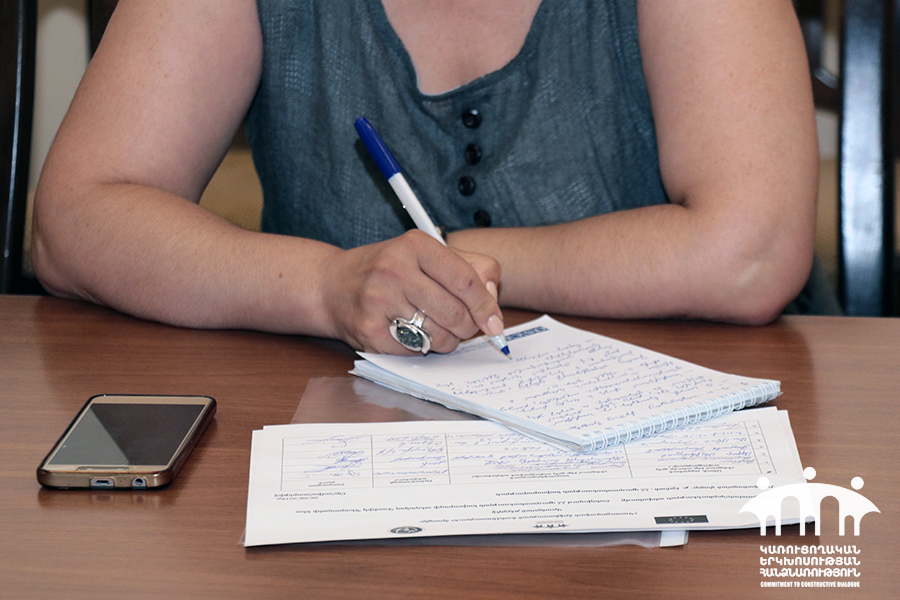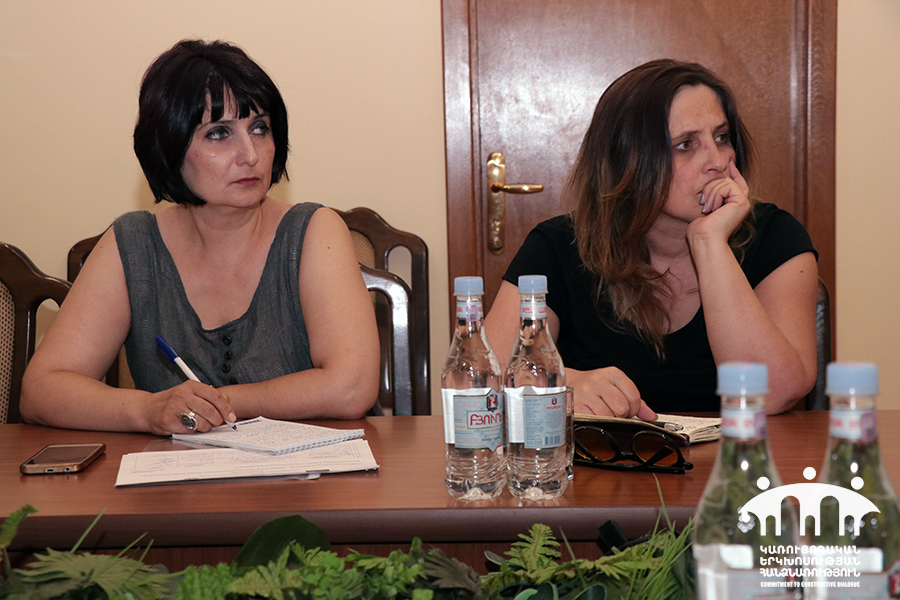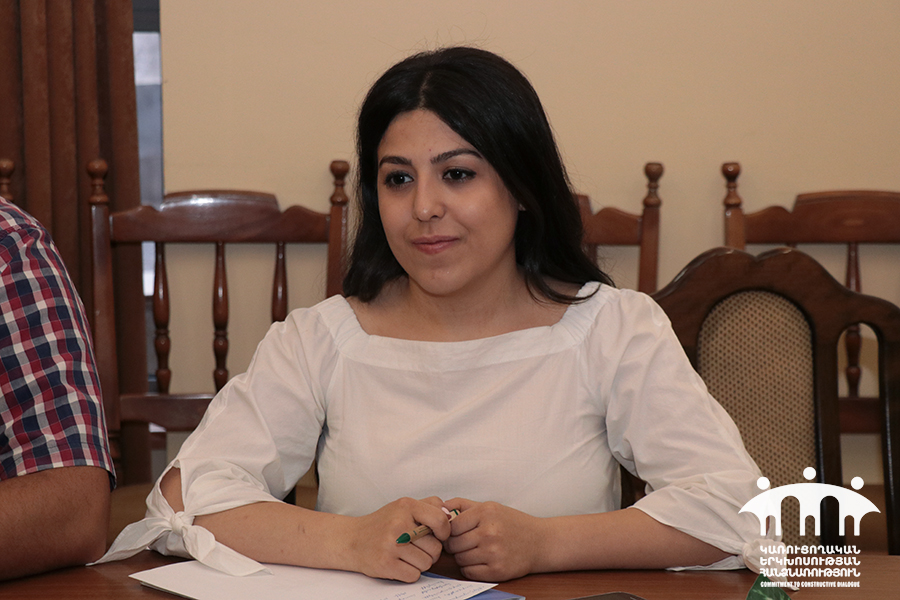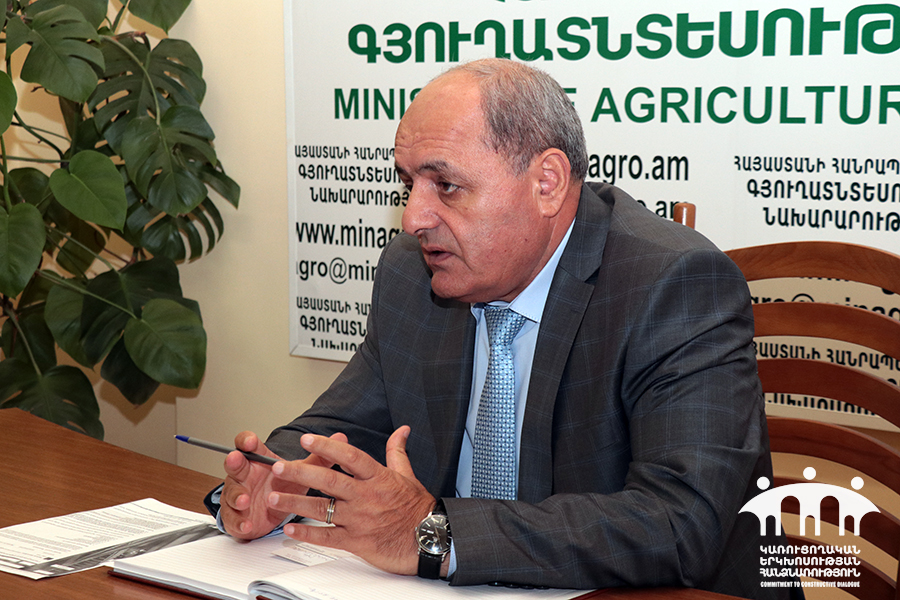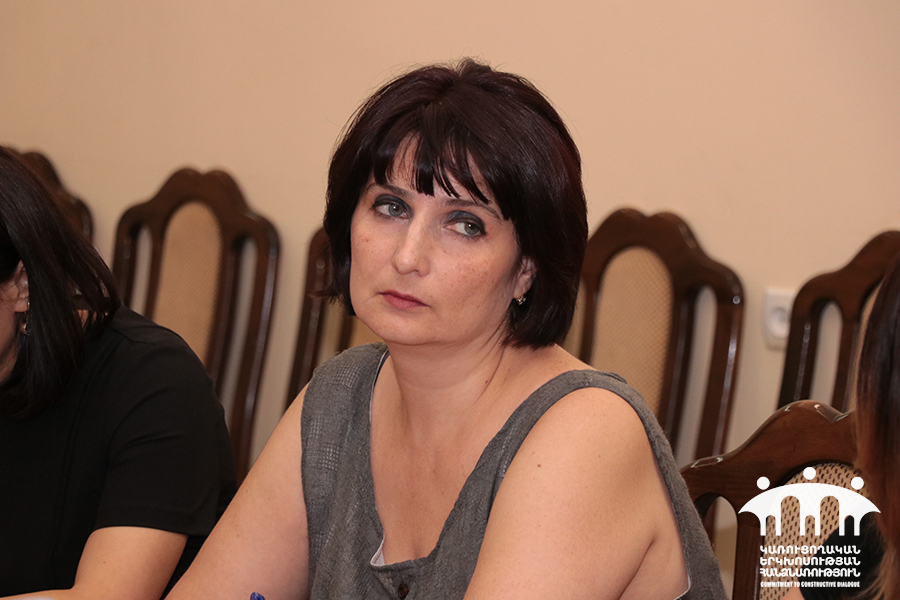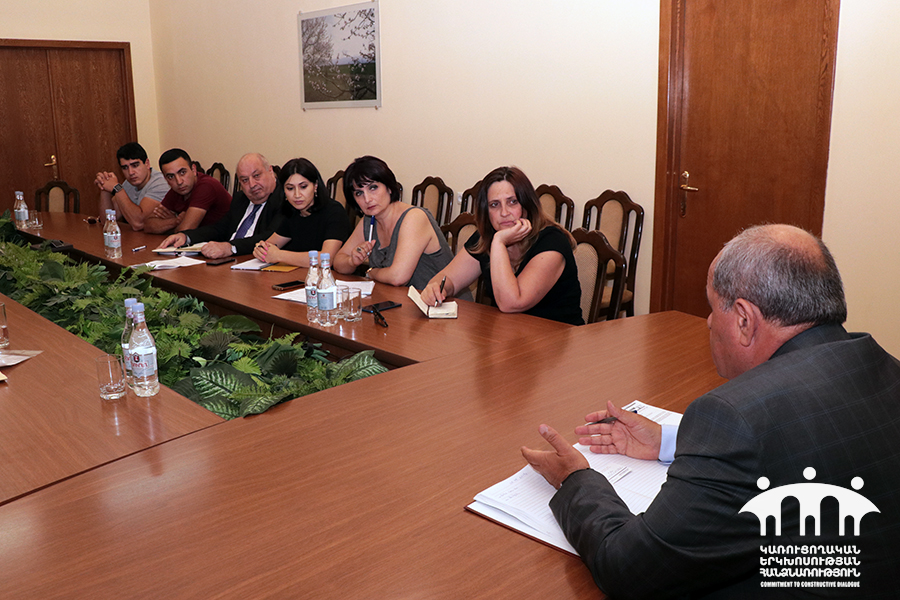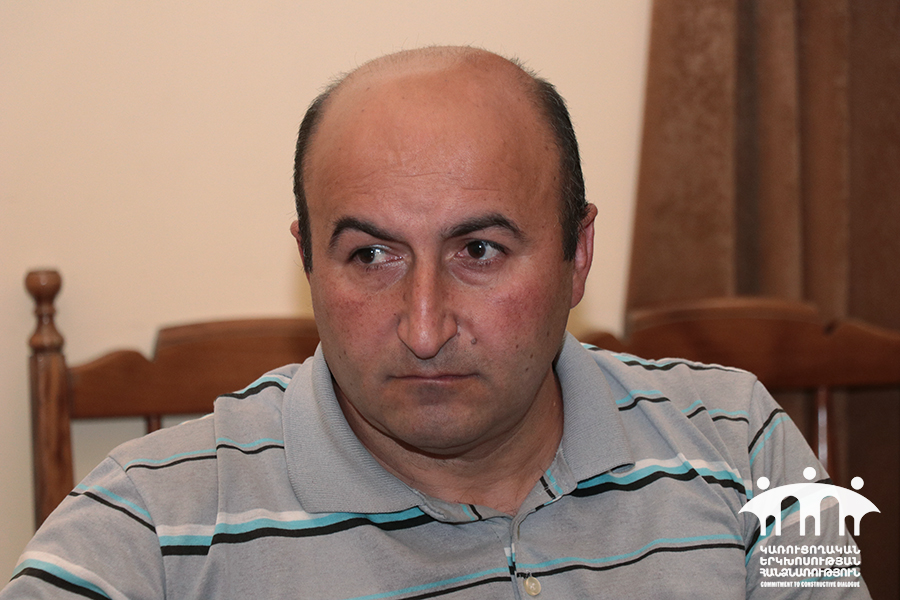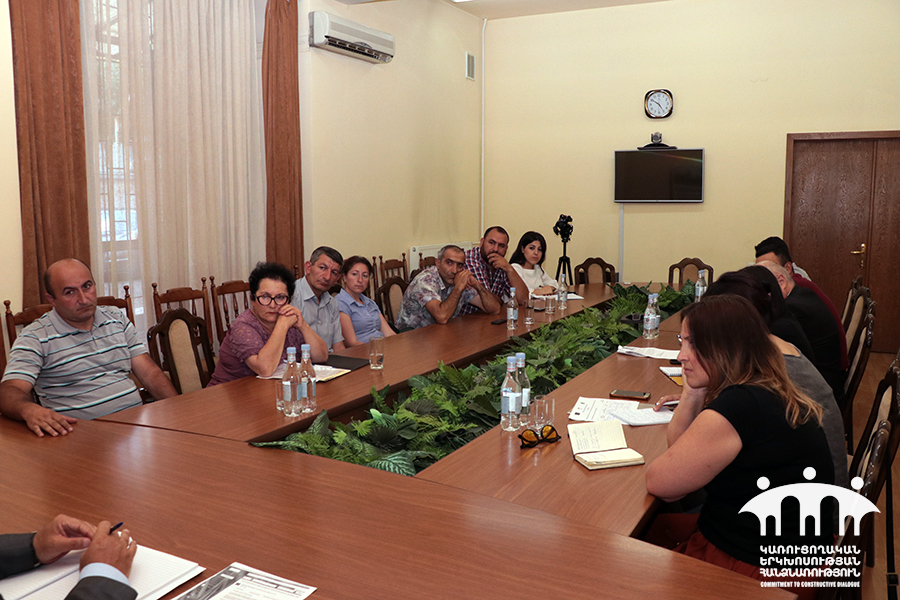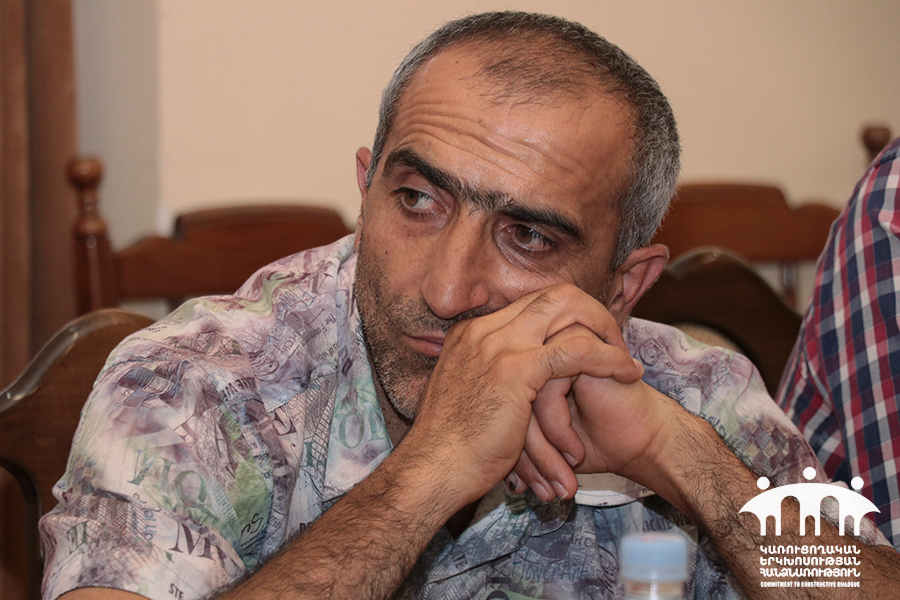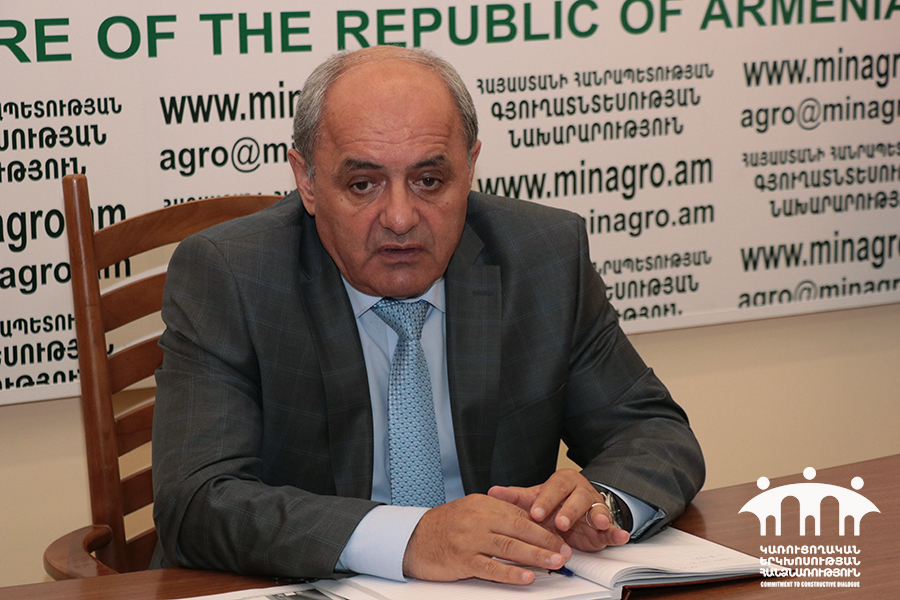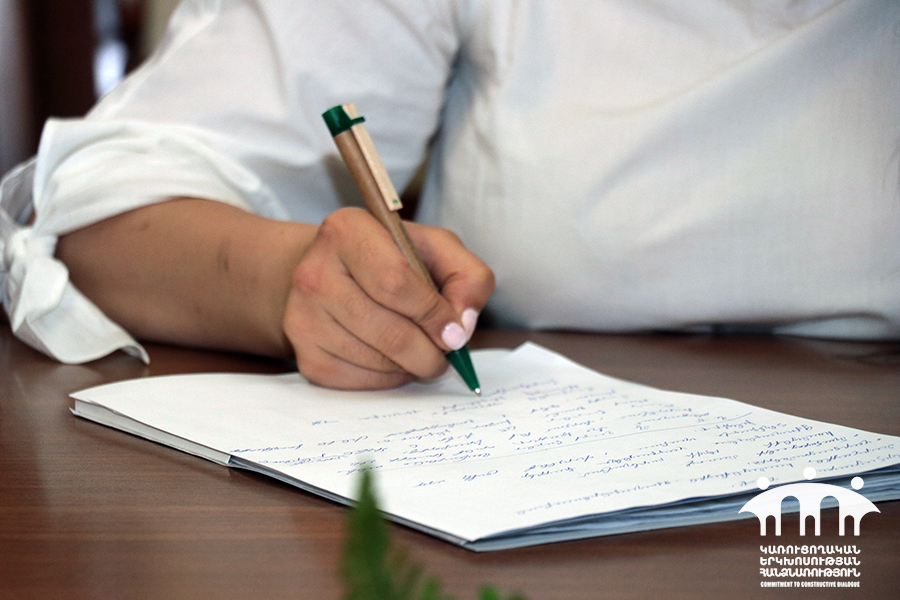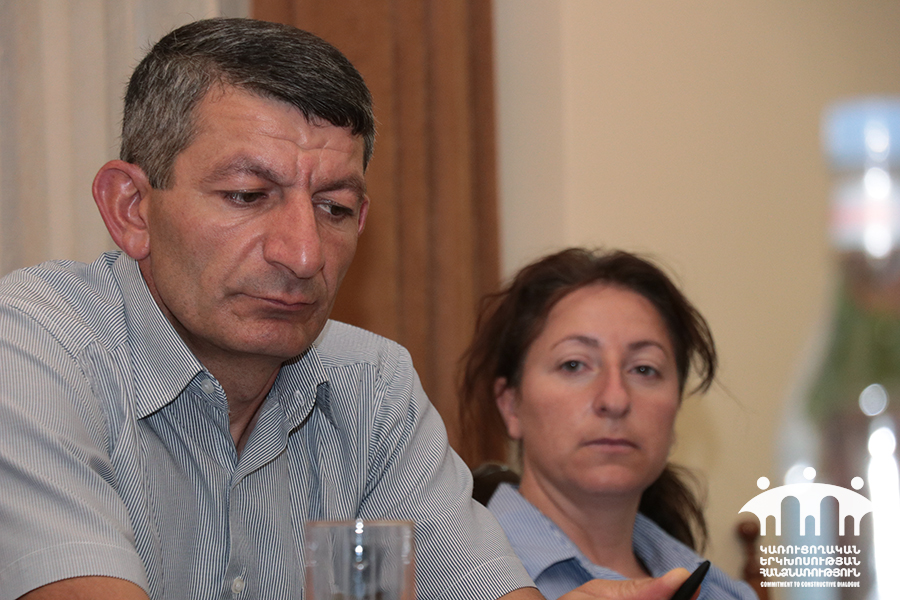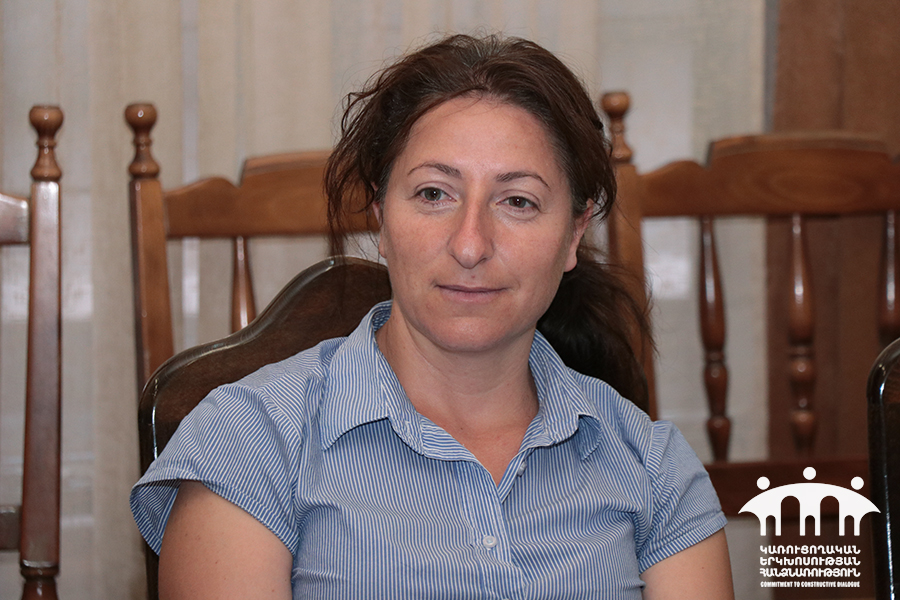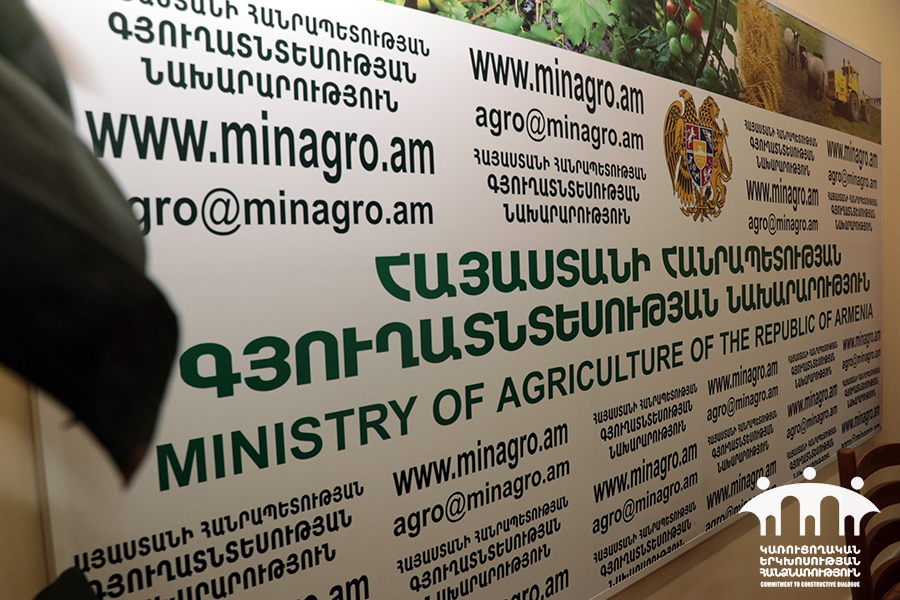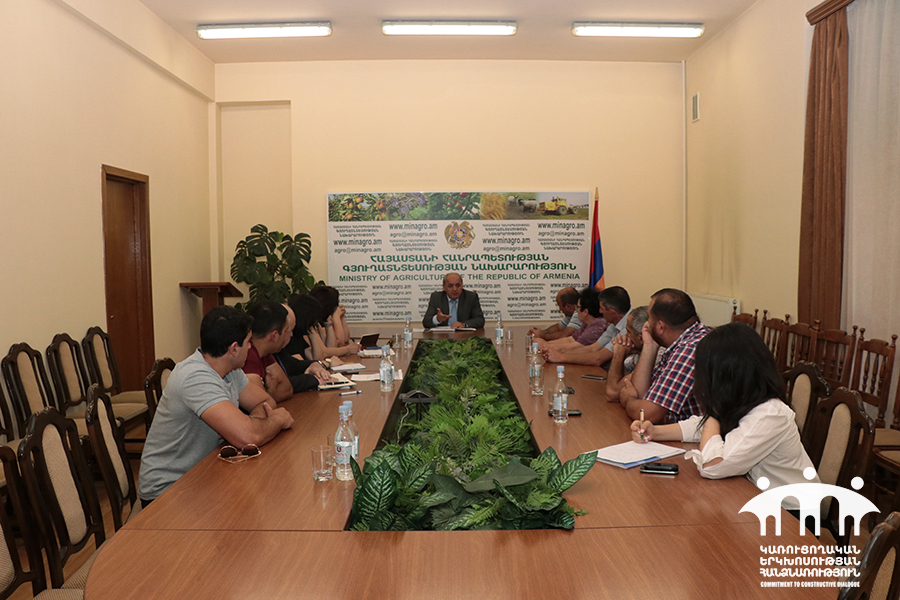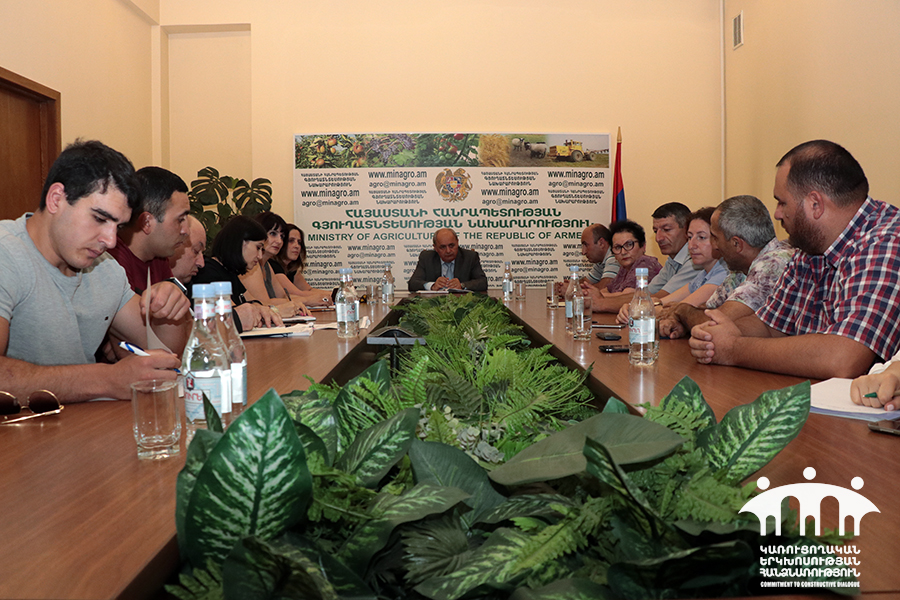
On August 6, the participants of the Gegharkunik, Shirak and Lori CSO incubators met with Deputy Minister of Agriculture Garnik Petrosyan in the scope of the EU-funded “Commitment to Constructive Dialogue” project.
During the meeting the Expert Lawyer of the Project introduced the main objectives and 9 target areas of the “Commitment to Constructive Dialogue” project and the work done.
At the beginning of the meeting, CSO representatives presented and briefly told about each of the priorities in the field of agriculture and the kinds of community events they are implementing. Deputy Minister Garnik Petrosyan in his turn mentioned that the Ministry had had a number of important programs and initiatives in the past, which were not implemented, and they are doing their best to accomplish them. Particularly, it is important to focus on small and medium-size farming economies, but at the same time not limiting the large-scale farms, and provide support on CSOs and state-level for the development of regional and community-based agriculture. Representation and participation of the NGOs in these processes should be increased as well.
During the event Artush Khachatryan, representative of “Community Pulse” NGO presented the experience of creating new crops, especially broccoli in their community. Then it was talked about fruit cultivation. There were suggestions to establish intensive orchard and to try to develop fruit cultivation. Issues related to installation of drip irrigation network, hail-safe areas were also discussed. The Deputy Minister noted that they provide loans for 2% and 1 year in connection with the installation of the drip irrigation network. All this results in reducing the competitive prices. He also added that subsidies can be organized on the spots.
The Another topic for discussion was another major sectoral problem related to the insufficient supply of irrigation water, the reason for which is the low level of water.
Most of the speakers mentioned about support to exporters who should be provided with special loans. It is also necessary to coordinate the state control.
One of the participants suggested to define the harvesting sequence in a certain way, the first crop will be received from the villagers of Ararat Valley, the second, from the Gegharkunik marz, etc. This will enable to control the market as well as to improving the communities’ harvest.
The participants expressed mutual desire to strengthen the cooperation between the CSO and the Ministry. In particular, agricultural consultation should be provided as the lack of such consultations is obvious. It was proposed to create support centers to conduct series of meetings.
The “Commitment to Constructive Dialogue” project is implemented with the financial support of the European Union by a Consortium of civil society organisations, which are the Armenian Lawyers’ Association (lead organisation), Agora Central Europe (NGO based in the Czech Republic), the Armenian Centre for Democratic Education-CIVITAS, the International Centre for Human Development, the SME Cooperation Association and the Union of Communities of Armenia.
The project aims to enhance the influence of civil society organisations (CSOs) and CSO coalitions/networks on public policies in Armenia. This will allow organisations that are already working in sectoral coalitions to access additional resources, new groups of civil society experts to come together and encourage place their causes on the local and national policy agenda, to identify common concerns and priorities and approach government bodies with constructive and strategic policy engagement initiatives.
The project will provide sub-grants to CSOs and CSO coalitions for developing public policies and bringing significant changes in the 9 target sectors selected within the project, including those of justice, human rights, public finance management, business, education, and the social sphere: social inclusion of children with disabilities, agriculture, economy, and energy.


